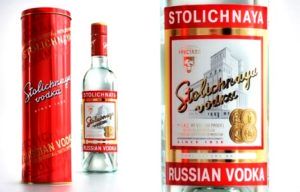Dutch Court Deals Enforcement Blow to Yukos Shareholders
 The district court of the Hague has ruled against the former majority shareholders of OJSC Yukos Oil Company seeking to enforce Energy Charter Treaty arbitration awards of over US$50 billion.
The district court of the Hague has ruled against the former majority shareholders of OJSC Yukos Oil Company seeking to enforce Energy Charter Treaty arbitration awards of over US$50 billion.
At the end of October this year, the court lifted the attachment the shareholders had previously secured over two Russian vodka trademarks, Moskovskaya and Stolichnaya. While the ownership of the vodka assets belongs to a state-owned company FKP Sojuzplodoimport (“FKP”), the court found that the state per se does not own them: a distinction that proved crucial to the outcome of this matter.
The 2014 Arbitral Awards
The shareholders have been battling to enforce the Awards against the Russian Federation since an arbitral tribunal in proceedings with assistance of the Permanent Court of Arbitration (“PCA tribunal”) ruled in their favour in 2014. In that case, the PCA tribunal accepted the shareholders’ contention that Russia unlawfully expropriated their assets, following the Russian state’s demand for billions of dollars in alleged back taxes in the early 2000s.
The extent of those tax liabilities—which followed a high-profile spat between Russian leader Vladimir Putin and Yukos magnate Mikhail Khodorkovsky—drove Yukos into bankruptcy in 2006, allowing the state to take control over their assets.
The Dutch Court Proceedings
In this matter, the court heard arguments from the shareholders’ counsel to the effect that, even if the state did not technically own FKP assets, the Russian state’s de facto ownership of the trademarks meant that the court should uphold the attachment.
The shareholders’ first argument was that the 2015 agreement, under which Russia transferred the rights to the relevant trademarks to FKP, was ineffective. The court rendered this a moot point by finding that the trademarks had belonged to FKP even before the 2015 agreement was concluded.
Secondly, they relied on comments from Australian and US judgments, which described FKP as a “cat’s paw” of Russia. This finding, according to the court, was simply irrelevant to the application of the governing law of the present matter: Dutch law.
The shareholders also put to the court that it should uphold the attachment because FKP had misused its powers and/or rights with respect to the trademarks.
First, they submitted, FKP and the Russian Federation have an identical purpose, where FKP solely administrates State property, with no other independent or autonomous function.
Secondly, the Russian Federation has ultimate and decisive influence and control over FKP and its rights, regardless of whether FKP holds such rights in operational management or in some form of ownership.
Thirdly, Russia appoints, dismisses, and supervises FKP’s sole director. His or her employment contract remains with the Russian Federation and not FKP.
Fourthly, the shareholders provided evidence of state proceedings and state publications in which both FKP and the Russian Federation have taken the position that the Russian state owns the trademark rights.
Their final submission was that FKP is a vehicle for keeping substantial Russian Federation assets away from legitimate creditors.
The shareholders’ references to Dutch legal principles did not persuade the court (which had heard expert evidence on Russian law in relation to this point). Russian law applied to the question of misuse of the trademarks, and that law supported FKP’s position.
The decisive argument in FKP’s favour was that it had the right to register the brands—and exclusive rights associated with the brands—in its own name. Additionally, it was able to exercise rights of use, exploitation, and enforcement in relation to the brands.
On those grounds, the court lifted the attachment, pursuant to which the trademarks had been under the shareholders’ names. Consequently, as things stand, Yukos will not be able to go ahead with its intention to auction the trademarks.
What Next?
Joris van Manen, counsel for FKP, said that “It was time this frivolous action, for which there is no basis in the law, came to a halt”. However, a representative for the shareholders stated that they would challenge the Hague district court’s judgment.
Ultimately, however, the outcome in this case simply narrows the shareholders’ options for enforcing their awards. The Awards themselves remain valid.
Meanwhile, in a separate action, the Russian Federation is applying to set aside the Awards themselves before the Dutch Supreme Court. The appeals, due to be heard in 2021, represent the Russian Federation’s last chance to avoid liability for a sum worth roughly a tenth of its international reserves. The Dutch Supreme Court has held that the Awards remain in principle enforceable before they give a conclusive ruling on their validity in 2021.
Sam Whiteley, UK lawyer











